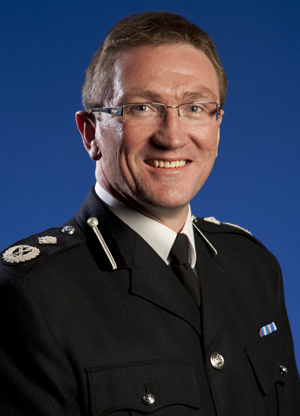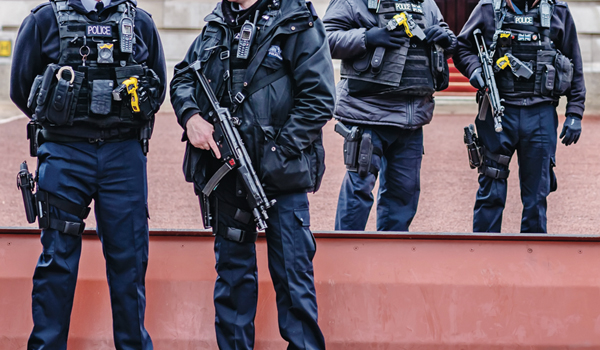Qualified benefits
Senior university lecturer Claire Evans gives an insider’s view on teaching the new Police Education Qualifications Framework programmes.
Following 17 years as a police officer at Dyfed-Powys Police, much of which was specialised in various training delivery and assessment roles, in June 2020 I decided to take the personal decision and resign from the force but return as the senior lecturer and course leader for the Police Education Qualifications Framework programmes (PEQF) at Dyfed-Powys Police, working for the University of South Wales (USW).
This article considers my personal observations and lessons learnt from the first three years of the PEQF from the higher education institute perspective while having an awareness of the realities of the policing role.
Context of the award
Dyfed-Powys Police’s first intake of degree students have now completed their three-year degree programme and has already successfully confirmed three cohorts of Degree Holder Graduate Diploma students, otherwise known as DHEP. The force was in fact, the first in the country to confirm the first ever DHEP students – an event celebrated online due to Covid lockdown with the College of Policing in attendance.
The force ran a Level 4 Diploma in Policing on the IPLDP (Initial Police Learning and Development Programme) and had done so for a number of years and while some other writers have stated that there are in fact little differences in the new PEQF curriculum, I believe what we now know and have learnt about the abilities and capabilities of new recruits are quite different.
It is true that both the degree and diploma programmes operate on a ‘professional practice’ level, students gaining credit and marks for doing the job and providing evidence of their performance through an Operational Competence Portfolio (OCP), which actually has not changed in Dyfed-Powys Police and was present during the Level 4 qualification (formally known as the SOLAP). What has changed is the pace at which students have been recruited and the length of service they spend on a training trajectory, and the amount of information to cover from the new policing curriculum set by the College of Policing. This of course being longer for the Police Constable Degree Apprenticeship (PCDA) students than the diploma students. Also, our awareness of the capabilities of these student officers, which under the older system may have remained hidden or stifled, has now become evident.
As a senior lecturer and course leader for the USW, working in partnership with five other police forces (Dyfed-Powys, Devon and Cornwall, Dorset, Gloucester and Wiltshire) we now have more than 1,300 students on programme.
However, this begs the question: what is the advantage for our students?
Student considerations
The teaching provision team is expanding and we have a balance of former police officers with a variety of service within the team, as well as longer serving academics and apprenticeship support officers with links to the on-campus policing teams, who support the students, as well as our force training teams within their own learning and development departments.
As a former officer with experience of the initial police learning, I am in the position of considering the new programmes within a critical approach.
Clearly, there is no doubt that being a full-time frontline police officer, as well as completing a Level 6 qualification, provides pressures and an infringement on personal time, along with a huge commitment to managing work-life balances.
Adult learners generally come with a lot more problems and challenges, including births, deaths, marriages, relationship break-ups, divorce, even finding a partner in the digital age. Deaths of elderly parents and the associated organisation of estates, or elderly parents full stop that can take some patience and time consumption, buying a house, selling a house, even trying to view a house at the moment is problematic; financial implications, sleep deprivation, menopause and unexpected vulnerabilities add to the impact of the policing role. All of this makes for some much stressed people in work environments.
This is without, of course, the implication of a worldwide pandemic lasting more than two years so far, which has brought restrictions on our movements, buying capabilities (or shopaholic addictions) and opportunities to interact with others, which has resulted in some serious impact on our mental wellbeing.
All of these problems has an impact upon the police student. However, the majority of students face them with determination and in fact success.
During the initial phases in any new professional occupation, one finds themself being a ‘probationer’ of sorts, learning the new role, completing mandatory training and working on achieving additional qualifications to improve your professional development and your worth in that new role.
This is no different in policing and is sometimes a fact that people often prefer to forget when criticising the new programmes. Many recruits already possess higher education qualifications and that has not changed, including a shortened probationary programme for them on the DHEP Graduate Diploma entry scheme.
However, what does not seem to have changed or been recognised in some quarters is the impression that you must have a degree to join the police service – you do not, as there are three entry levels. It is possible that this is not published as well as it should be, and work is still needed around the publication of information with clearer guidance in recruitment campaigns surrounding minimum entry requirements.
This can result in is new recruits starting the programmes already being quite confused about what they have to do. In addition, if the particular police force training teams are not on board and confused themselves, this can further hinder understanding in the early stages and can have a cumulative effect later in the programme.
Teacher insights
There have been various feedback and comments in the past two years, some of it not very complimentary, towards the programme.
However, there were similar comments under the IPLDP system, especially if the force ran an integrated training programme in which new recruits spent attachments on the front line in the middle of the initial phases of the programme and then returned to a headquarters-based location to receive the next part of classroom delivery – managing enthusiasm levels after this as a police trainer is very difficult.
This is not dissimilar to managing year two and year three training under the new PEQF programme. However, this can now be difficult, particularly when officers are tired and have worked overtime the day or even the night before and find it difficult to engage in online learning.
Common complaints from students remain about staffing levels on the front line. As a police initial trainer you needed to know a little bit about everything, probably in excess of 200 different diverse subject areas. It is more likely that the only research one would be able to undertake was learning how you are going to make changes to a lesson if new legislation came into place, the force changed a policy, procedure or form, or you were in fact studying for your sergeant’s exam.
Under the PEQF programme and change of role to a university lecturer it seems that in the past 18 months I have read more government policing reports than I ever knew existed as a police trainer. The new recruit police trainer has time only for the basics of information in short spurts of time in order to cover the new policing curriculum set by the College of Policing with a return to learning in years two and three.
I am now seeing and reading reports and recommendations for the first time that are not only relevant but which could be argued are essential reading in police training. My personal foundational knowledge regarding policing in England and Wales has expanded enormously.
These students will come out more qualified than some current senior officers, hopefully with a more critical mindset and ability to justify and make the right decisions
For example, as the degree students embark on their evidence-based research projects (dissertations), I have seen reports from overseeing bodies such as the Home Office, the former Association of Chief Police Officers, National Police Chiefs’ Council, Independent Office for Police Conduct, Her Majesty’s Inspectorate of Constabulary and Fire and Rescue Services (HMICFRS), safeguarding review bodies and The Police Foundation that I never knew existed. Some of these bodies have made recommendations for change in areas where police forces have been seen to fail in HMICFRS PEEL inspections. Even the use of the College of Policing APP (Authorised Professional Practice) site is a fresh concept, the new recruit getting more use of its materials to support year two and year three assignments, not basic assistance for a response officer.
The question therefore arises as to why these reports are not shared with frontline officers generally? Why are the reasons for change not communicated down the ranks? Or more importantly, who has the responsibility for doing this? Under the College of Policing new curriculum there are many learning outcomes that it could be argued are not required for the level of service of a new recruit, but there are also an equal number of ‘basics’ that have never been communicated or taught before.
Of course, one has to consider where the line is drawn, and go back to the length of the probationary period being ever expanded, and time versus the need to staff the front line being the priority. However, upon reflection it seems that as a police trainer I was not aware of the enormous amount of influential change and reports that agencies had made regarding policing. More importantly, I am now able to digest the information within them to aid achievement of delivery of the curriculum and assist student officers with a deeper understanding of some topic areas.
Student feedback
Feedback appears to suggest that all students see PEQF as a bind, but there is finally evidence the tide is turning with students able to identify their own development, with better understanding and apparent acceptance of what has become a mandatory requirement for success in the job.
While the practical response police officer is seen as residing at the bottom of the hierarchy in force rank structures, these students will now come out more qualified than some current senior officers, hopefully with a more critical mindset and ability to justify and make the right decisions. What appears evident is the desire to succeed and do well and the significant changes to academic writing skills, which can inevitably produce better statements, crime updates and evidential files.
Students produce reflective pieces whereby they give credit to the programmes for improved communication skills, better appreciation for different circumstances within the community they police, and an understanding of the importance of demonstrating good consistent adherence to the Code of Ethics. One such observations that made me chuckle was “….I am now able to eloquently explain to people my decision-making justifications”.
Our new recruits have been learning how to prepare digital presentations that not only allow them to display innovative and creative designs, but at the same time highlight the impact of digital evidence and the lack of digital tools available in policing to carry out an investigation, a key area for development highlighted under the Policing Vision 2025.
While police students may complain about the length of time it takes them to complete such audio presentation assessments, what many do not realise is that such assessment methods allow them to showcase some great innovative practice, research and technical demonstration of their own. Many would now have no problem with delivering a briefing or having a critical discussion with a senior officer and demonstrating their ability to talk to a crowd. There has been a visible improvement in confidence levels as each student officer progresses through one year to another. Increases in assessment marks are demonstrated and the quality of what some students have written and presented has vastly improved.
Concluding thoughts
Considering the large number of students and cohorts that are going through the process, what is apparent is the benefit of teamwork in achieving the goals.
The team of colleagues at USW have all worked together to develop the programmes, keep them running during the pandemic and continue to try our very best for each student officer. Working in collaboration with partner forces is also crucial to its success and we must all remember that we are here to assist students achieve not hinder them.
What has also been truly satisfying is seeing such development and recognition from the student and being able to congratulate them when they reach the final stages and, of course, seeing the relief from them when they have completed.
The programme seems to be embedded within the police service in England and Wales, and those not involved in this form of study need to understand the time and commitment supplied by the current police student. Indeed, as time progresses and more and more students graduate we should hopefully see innovative and exciting ideas and initiatives from them to fill gaps in our knowledge about policing, and also identify officers suitability for specialist roles, which will not just be for the benefit of the police, but also for the communities they serve.
Claire Evans is a Senior Lecturer at the University of South Wales (USW) working in partnership with Dyfed-Powys Police on the delivery of the PEQF police recruit programme. She was previously a serving officer at the force responsible for new recruit training and assessment and worked with USW in the initial phases to put the programme together when Dyfed-Powys Police decided to become an early adopter of the programme. She joined the USW staff in June 2020 to deliver the HEI side of the PCDA and DHEP qualifications to the student police officers.






